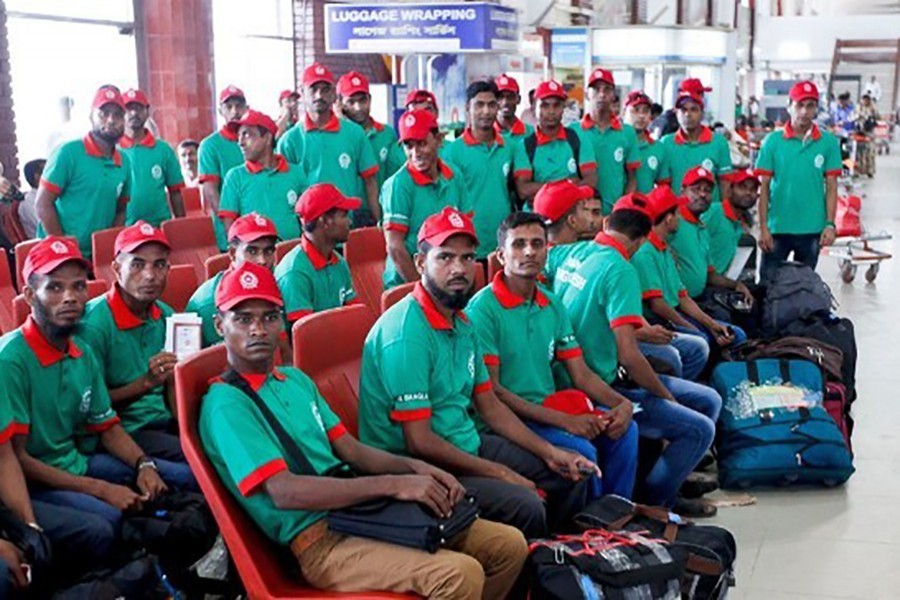Bangladesh has sent more than 300,000 workers abroad with jobs in the last nine months of this calendar year, official statistics show, as manpower export picks up after a slump in 2020.
The migration of workers, numbering 317799, during the January-September period of 2021 was 46 per cent or 100,130 higher than the figure of the entire calendar year 2020.
Bureau of Manpower Employment and Training (BMET) data released recently reflect the corona-inflicted fall last year and a rebound this year with the pandemic receding after a surging second wave.
Manpower recruiters could send only 217,669 workers in 2020 according to the official count. Vital job-destination countries had suspended air travel for a certain time to check coronavirus infection last year, resulting in a fresh recruitment stalemate alongside the return of many.
According to the BMET latest data, of the total number of jobseekers sent abroad, 42,008 went in September alone with the situation of restrictions increasingly turning for the better.
Officials said that, presently, Saudi Arabia is mainly recruiting workers from Bangladesh under an extended quota.
The Arab nation increased job quota for Bangladeshi workers to 40 per cent from 30 per cent in the private sector recently.
Manpower recruiters said if Bangladesh could tap the opportunity properly, the recruitment of workers by the gulf country would "increase several times" in the days ahead.
Saudi Arabia hired 31,238 workers from Bangladesh in September. The second-highest number of recruits was taken by Oman, numbering 4661, followed by Qatar's 1568 and Jordan's 1324.
Bangladesh sent workers to 33 countries for jobs last month.
Ali Haider Chowdhury, ex secretary-general of Bangladesh Association of International Recruiting Agencies (BAIRA), is upbeat about the prospects for steady manpower employment abroad. "Hopefully, the trend in the outflow of workers would continue in the remaining months this year," he says.
Recruiting agencies are working with about 100,000 demands from Saudi Arabia now, he mentioned.
"If the trend continues, the country would be able to send nearly 500,000 workers in 2021," he said.
But the former BAIRA leader said Bangladesh should explore more jobs on the international market.
He hopes so as many economies are reopening after pandemic-forced shutdown and some are hamstrung by labour shortages.
If Malaysia resumes recruitment from the country soon, a notable number of workers would be absorbed there, he specifically mentions regarding prospects, while reports say the ASEAN country is already considering recruiting higher numbers of Bangladeshis.
However, recruiters said the government should enhance facilities for manpower recruiters and jobseekers to utilise the potential of overseas labour markets.
Migrant rights activists emphasised quality migration so that workers do not suffer in the destination countries. Market analysis was essential before sending workers abroad, they say.
Shakirul Islam, chairman of Ovibashi Karmi Unnayan Program (OKUP), said "visa trading" should be prevented to make sure safe and orderly migration.
Still, workers pay high recruitment fees and face different forms of maltreatment because of such unethical practices.
The OKUP chairman also called for ensuring a proper workplace environment.
Over 13 million Bangla-deshi workers have found jobs abroad since 1976. Most of them went to Middle-Eastern countries, according to the BMET data.
The migrant workers annually send $15-16 billion home as what is called "remittances" in economic jargon. It is Bangladesh's second-largest source of foreign exchange earnings after its textile industry.


